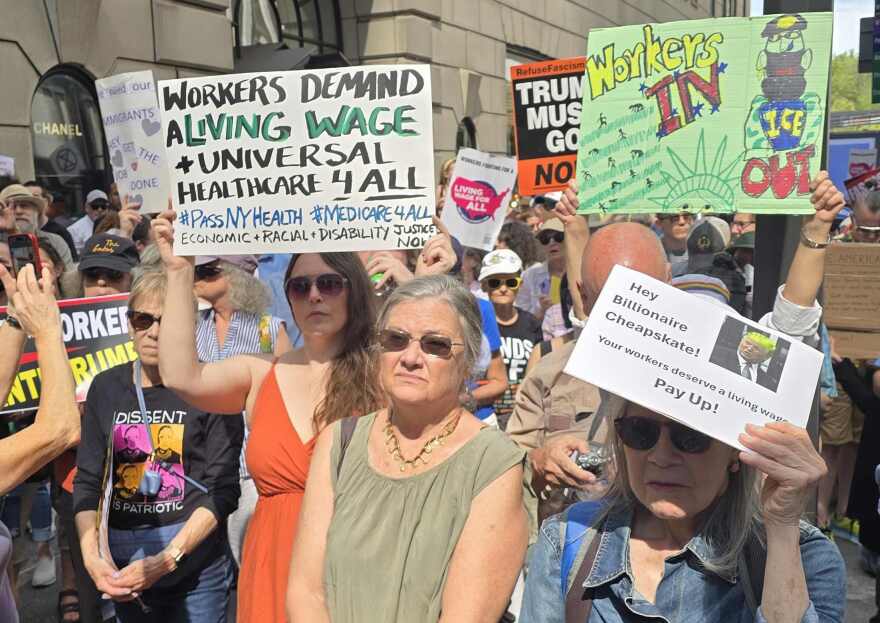A Labor Day rally called for a minimum wage that would truly cover the average cost of living for New Yorkers. The group One Fair Wage released a report in which researchers at MIT said most workers would need to earn $25.00 an-hour to cover the cost of living, and likely $30.00 an-hour in New York and other higher cost states.
The group said even recent raises in the state minimum wage don’t allow people to pay rising rent, food and utility bills.
“Basically one in two New Yorkers, one in two Americans, is not earning enough right now to meet the cost of living,” said One Fair Wage President Saru Jayaraman. “Pretty much the top of every poll, every inquiry of people is saying I I don't earn enough to meet the cost of living right now.”
A rally in New York City was staged in front of Trump Tower Monday. It corresponded with similar events in other states.
Jayaraman blamed President Trump’s imposed tariffs and elimination of Medicare for making it even harder for many workers to get by. The group is joining other worker advocates in calling for a state measure to raise overall minimum wages, while also eliminating the reduced minimum for restaurant and other tipped workers.
“Labor Day always has been about workers elevating their needs and their demands and honoring the value of Labor. Because it is clear that billionaires have become such a powerful oligarchy, we now are calling on New York State legislators to side with workers over billionaires and provide a wage that actually meets the cost of living.”
She estimated there are more than 60 co-sponsors for measure to end sub-minimum wage for tipped workers. Currently, minimum wage is 16.50 in the New York City area, and 15.50 elsewhere in the state. It’s five dollars less for restaurant workers and others who routinely get tips.
The National Restaurant Association reported in January a higher incidence of closures of restaurants in areas with higher minimum wages. The Association’s report also found profitability of restaurants remains below what it was before the pandemic.



